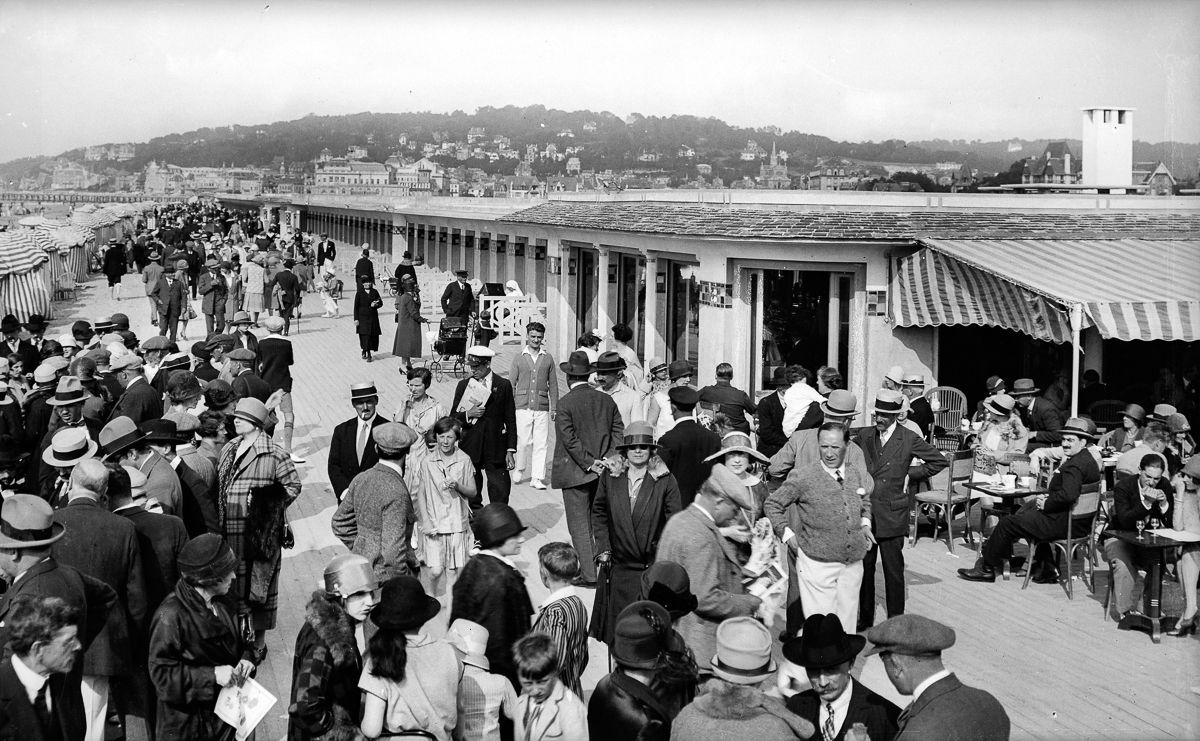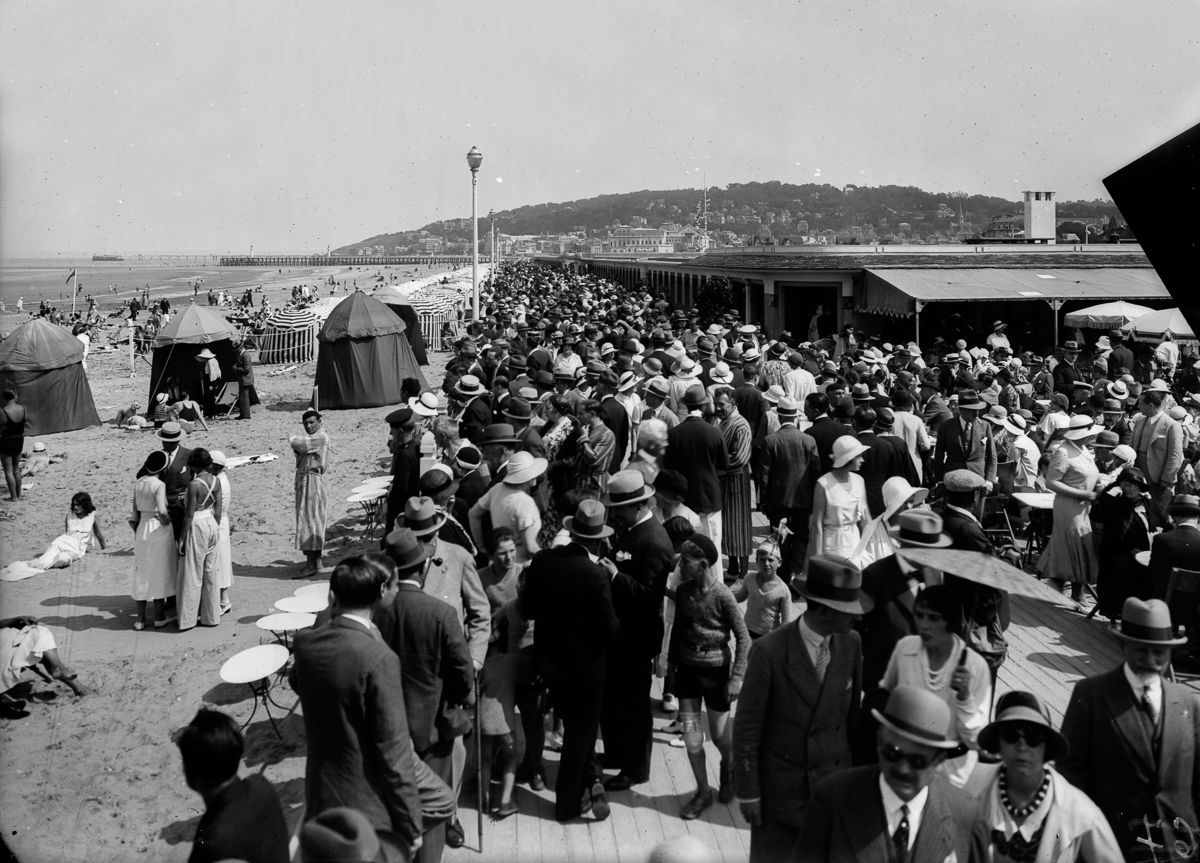Vintage photos capture people enjoying France's glamorous Deauville beach, 1900s-1930s

As the closest seaside resort to Paris, the town and its area of the Cte Fleury (the Coast of Flowers) have long been home to the seaside houses of French high society and are often referred to as the Parisian Riviera.
In addition to villas and mansions, the city of Deauville had casinos, horse races, luxury boutiques, a beachside boardwalk and therapeutic baths.
However, the main attraction was the wide sandy beach, which provided opportunities for sunbathing, donkey rides, aerobics and other outdoor activities.

Hubert would leave France to follow William the Conqueror, the first Norman king of England. Despite its long history, it was not until 1860 that Deauville made the developments that would shape the area it is today.
By 1860, Deauville was famous for its horse country. Napoleon III's half-brother Duke Charles Auguste Louis Joseph de Morny turned the area into a travel destination.
Before his death, the duke built the Deauville-La Toux racecourse, invested in the Paris-to-Douville railway, built a small casino, and is credited with building a church and school. No longer a sleepy seaside village, Deauville began to boom.

During World War I, wounded soldiers would be cared for in Deauville's famous hotels and casinos. Unfortunately, the war also took a toll on Deauville's booming market and business sector as merchants were forced to give up many of their products to the war effort.
The combination of the national financial crisis and World War II completely removed Deauville's paradisiacal aura that would not reappear until the 1950s.
During World War II, the German army occupied Deauville. The villas, hotels and casinos were all occupied or used to some extent by the German army. After the Allied invasion on D-Day, German troops were pushed out of Deauville and Normandy.
After the war, and perhaps in the 1960s and onwards, Deauville understood what it represented and decided to act accordingly, playing the cards at its disposal: myth and exclusivity.
Deauville again became the center of high society and celebrities from almost every field. With scenes from award-winning films being filmed in Deauville (such as Claude Lelouch's "Un Homme et Une Femme") and endless celebrity traffic, the city has renewed its status as an iconic resort town of Europe.




No comments: